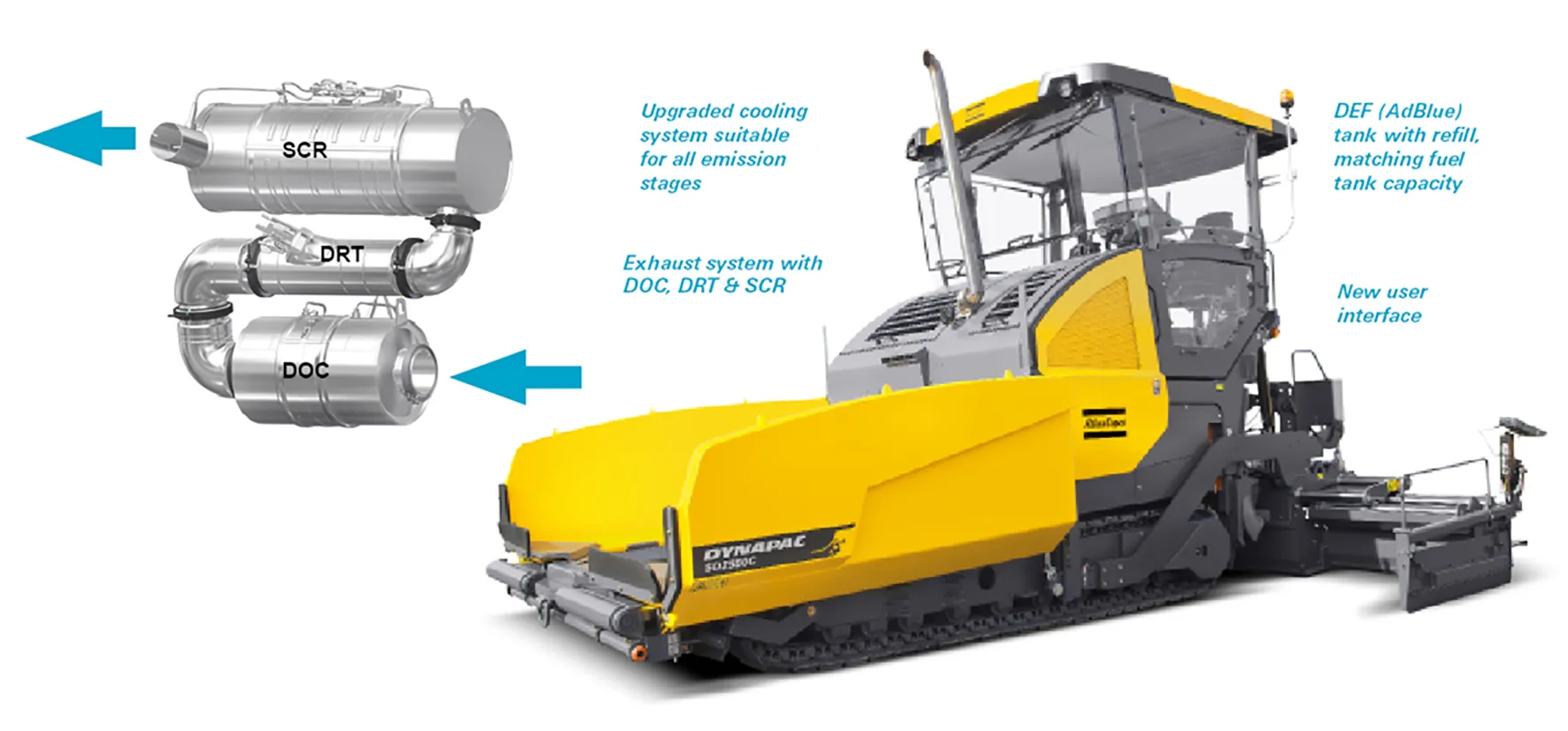
Sumitomo is aiming to boost its share of the global market for asphalt pavers. The company is market leader in Japan and plans to develop sales around the globe, according to president & CEO, Isamu Mitsuhashi and regional manager road machinery, Weichao Shi.
The company has undergone an organisational change to expand its presence in the global paver business. At the moment the firm is only exporting its HA60 model to Europe but believes this model offers performance benefits over competing machines.
The key to a paver’s performance is its screed and in this respect, the firm says its design offers high versatility. Compared with the conventional 2.55-5m or 3-6m screed, the Sumitomo design offers paving widths of 2.3-6m or 2.8-7.5m, without the need for bolt-on extensions. This can save time, labour, and the need for equipment such as forklifts or cranes to manually bolt-on the extensions onsite.
Screed performance is also said to be good by the firm as the strike-off, tamper and vibration (STV) compaction system on the Sumitomo unit is highly effective. The strike-off unit guides the material smoothly to the tamper and vibration plate, providing pre-compaction. It also gives the tamper a longer wear life.
The transport width of the 2.3-6m screed equipped HA60 is 2.49m. A user can close the screed, load on the trailer and go, without having to remove the side-plate on a 2.55m minimum screed and without extra application for the transport width clearance in most countries.
The Sumitomo machines are also versatile enough to able to work with a range of asphalt types, with warm mix now being used in the market. Mitsuhashi said that in the late 1990s, several private companies in the road pavement sector developed medium-temperature technologies that use additives to reduce the production temperature while maintaining the quality of the asphalt mixture.
The Japan Road Construction Association (JRA) compiled these technologies and published the "Guide to Medium-Temperature (Low Carbon) Asphalt Pavement" in March 2012. In Japan warm mix asphalts are used typically for duties such as repair work requiring early traffic reopening, or for paving work in mountainous areas involving long-distance transportation, thin-layer paving or winter paving.
Stand C4.513









